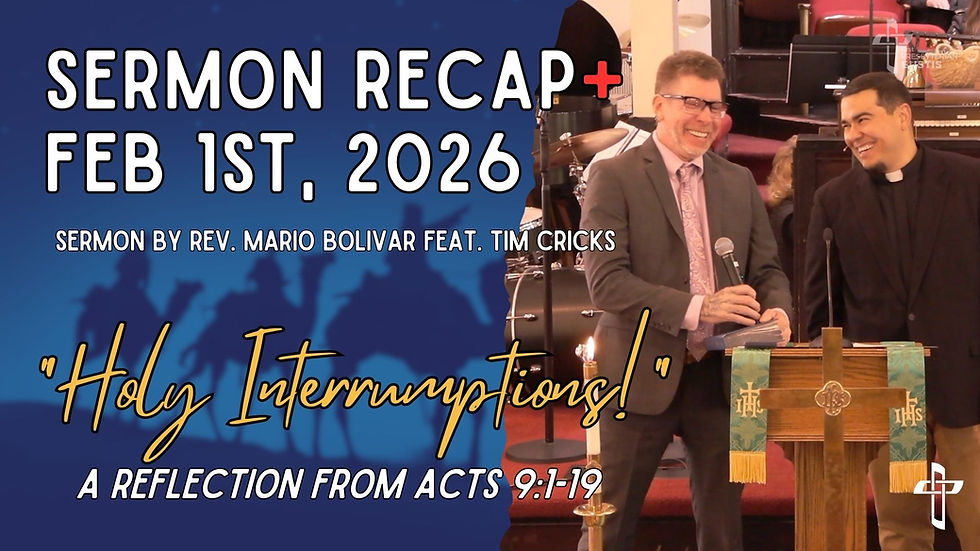An Excellent Epiphany Movie...
- Mario Bolivar
- Jan 7, 2025
- 4 min read
You might not expect Die Hard, an action-packed movie about a cop fighting terrorists in a skyscraper, to have anything to do with Japanese philosophy or faith. But bear with me—this Christmas (or not) classic actually has some surprising lessons when you think about it through the lens of wabi-sabi.
Oh, and by the way, I believe Die Hard is an excellent Epiphany movie (I can also make a pretty good argument about being a Christmas Movie, but that's something for another time). Think about it: a transformative journey, unexpected revelations, and a moment where light shines in the darkest places—sounds a lot like Epiphany to me.
What Is Wabi-Sabi?
Wabi-sabi is a Japanese idea that finds beauty in things that are simple, imperfect, and fleeting. It’s about appreciating the cracks in a vase or the way a sunset fades. Instead of focusing on perfection, it celebrates life as it is—messy, broken, but still beautiful.
So, how does Die Hard connect to this? On the surface, it’s an explosive action film, but when you peel back the layers, it’s a story about relationships, personal failure, and redemption—all wrapped up in imperfection.
John McClane’s Wabi-Sabi Journey
John McClane, played by Bruce Willis, isn’t perfect. He’s stubborn, estranged from his wife, and prone to making bad jokes at the worst times. When he arrives in Los Angeles to patch things up with Holly, he brings more attitude than humility. But when terrorists take over Nakatomi Plaza, John has to rely on his wits, a radio, and his sheer will to survive and save the hostages.
Here’s where wabi-sabi comes in: John doesn’t have a grand plan. He’s not armed to the teeth or perfectly prepared. Instead, he’s barefoot, bleeding, and improvising. His situation is messy, chaotic, and full of mistakes, but in the cracks of all that imperfection, you see his courage, love for Holly, and resilience shine through.
John’s journey reminds us that we don’t need to have everything figured out to rise to the occasion. The beauty lies in doing your best with what you have, even when it’s far from perfect.
Why Die Hard Is an Excellent Epiphany Movie
Epiphany is a season about revelation—about seeing light in the darkness and discovering hope where you least expect it. In Die Hard, John McClane goes through his own epiphany. He starts out as a flawed man trying to fix his mistakes but ends up realizing that love, sacrifice, and perseverance matter more than winning every argument or being right.
This mirrors the spiritual journey of Epiphany, where we remember the Magi following a star to find the Christ child. Like John, they didn’t have all the answers or an easy path, but they kept going, step by step, trusting the light to guide them
What Christians Can Learn from Wabi-Sabi and Die Hard
As Christians, we often feel like we have to get everything right—our faith, our relationships, our work. But the Bible reminds us that God’s power is made perfect in our weakness. 2 Corinthians 12:9 says, “My grace is sufficient for you, for my power is made perfect in weakness.” Just like John McClane didn’t need perfect circumstances to save the day, we don’t need to be perfect for God to work through us.
In Die Hard, the broken relationships between John and Holly are another reflection of wabi-sabi. Their marriage isn’t perfect—far from it—but by the end of the movie, you see the love they still have for each other despite the cracks. This reminds us of God’s call to reconciliation and grace. Colossians 3:13 says, “Bear with each other and forgive one another if any of you has a grievance against someone. Forgive as the Lord forgave you.”
The philosophy of wabi-sabi and the story of Die Hard both teach us to embrace imperfection, trust the process, and find beauty in the messiness of life.
Practicing Wabi-Sabi in Daily Life
Here are some ways we can practice wabi-sabi and live out our faith:
Embrace Imperfection: Like John McClane dealing with broken windows and bad odds, accept that life is messy. Let God work through your flaws.
Appreciate the Small Wins: Whether it’s reconnecting with someone you love or just surviving a hard day, celebrate the little victories.
Be Present in the Chaos: Even in stressful times, pause and remember that God is with you. Psalm 46:1 says, “God is our refuge and strength, an ever-present help in trouble.”
Let Go of Perfectionism: You don’t need to have it all together. Trust that God can use even your most imperfect efforts for good.
Find Beauty in the Broken: Whether it’s in relationships or challenges, look for signs of God’s grace and love in the middle of it all.
The Wabi-Sabi of Faith
At its heart, Die Hard isn’t just a story about saving hostages or taking down villains. It’s a story about imperfect people finding courage, love, and hope in the middle of chaos. That’s wabi-sabi—the beauty of imperfection and the reminder that life doesn’t need to be perfect to be meaningful.
For Christians, this idea connects deeply with our faith. God doesn’t expect us to be flawless; He meets us in our weakness and transforms our brokenness into something beautiful. Whether we’re navigating the challenges of relationships or just trying to make it through a tough day, we can trust that God’s grace is sufficient.
So, the next time you watch Die Hard, don’t just see the action. Reflect on its deeper lessons: that imperfection is okay, that relationships can be healed, and that even in the chaos, there’s beauty to be found. And, if you’re celebrating Epiphany, think about how light and hope can appear in the most unexpected places—even a high-rise under siege. Yippee-ki-yay, and amen!





Comments